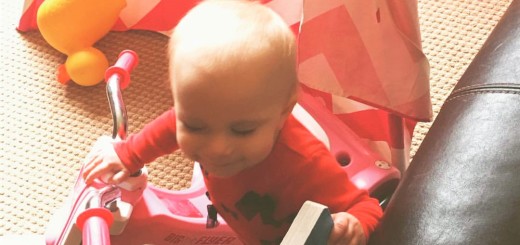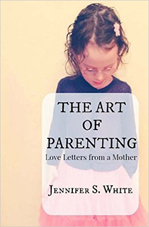Throwing Away “I’m Sorry” & Teaching Empathy.
Teaching our kids empathy instead of meaningless “I’m sorries.”
These days, it seems that I meet more and more narcissists.
While I’m not a psychologist, it is commonly believed that a true narcissist doesn’t have the ability to feel empathy for other people and, more, that this personality disorder is largely connected with how a child was raised.
That said, I’m sure all of us have at least one friend who throws around “I’m sorries” for anything and everything. Not only can this be annoying, it also makes these words meaningless when over-used (without even mentioning the self-esteem and mindset of the frequent “I’m sorrier.”)
And, in this day and age of raising my children with social media and selfies galore, as a parent, I’m even more concerned with teaching my children how to really feel emotions—both their own and another’s.
The idea of teaching empathy to my daughter became a reality for me when she was a little over two and a friend, who’s a Montessori teacher, and I were having a playdate with our children. She overheard me tell my daughter to say “I’m sorry” to her playmate. Kindly, my friend intercepted, and encouraged me to instead teach my daughter to ask, “Are you okay?”
Teaching a small child to ask someone, “Are you okay?” reinforces why we say the words, “I’m sorry” in the first place. Eventually, these traditionally apologetic words will come naturally and, when they do, there will be much more understanding of why they’re used at all.
Another reason to stop teaching tiny kids to reactively say “I’m sorry” is because this does actually teach our children something, albeit not what we’re intending to; it teaches a child to feel guilt.
But personal guilt is not the same as empathy. While guilt and remorse certainly do, and sometimes should, occur within a situation that bears the need to apologize, these emotions are not the primary things we should have to teach our children.
It’s easy to think that empathy is unteachable, but I don’t see this as the case. Again, look at personality disorders connected with empathy and often times how a child was brought up is a huge part of the discussion—and underlying problem.
I recently read a thought-provoking article in The Guardian on the merits of talk therapy with trauma, and how various cultures around the world perceive talking about what caused the trauma as alternately helpful and harmful. Yet, in our Western mindset, we are raised to see talk therapy as one of the best (and only) real ways to move past a trauma and into health.
In other words, emotions and experiences do not always translate identically between different cultures.
As someone who studied sociology in college, the idea of ethnocentric thinking is of the utmost importance. We cannot fully understand or appreciate other cultures and people if we are always seeing the world through our own eyes—and this is what empathy is or, more accurately, isn’t.
True empathy is the ability to understand a person’s feelings through their eyes and not our own—the figurative “put yourself in her shoes” situation—and this begins at a very young age.
So, as a mindful parent and a tender human being, it’s crucial to me that I do the best I can to teach my daughter to respect and care for other individuals enough to try to place ourselves in their shoes; to feel what they are feeling through the scope of their own reality. Additionally, it’s important that I teach my daughter to care about her own feelings as well.
Women and girls everywhere are still more susceptible to be taught servitude and placing themselves last. I want my child to know that her feelings matter too, and that casually throwing around an “I’m sorry” both detracts from the value of empathy for other people and it isn’t ideal for her own confidence either.
And I’ve also lately read several articles debating whether or not to teach children to say “I’m sorry,” but I’ve rarely (okay, never) seen a discussion like this brought up: that the most important aspect of this debate is that we can teach children why they are saying “I’m sorry.”
While I’m still in the throes of child-rearing and certainly cannot pretend to be a grand success in this paramount matter, I do think that, as a society, we need to address what we can do to better promote our shared connectedness and concern for one another. After all, a society cannot exist without individuals, just like an individual cannot exist without society.
“He who is unable to live in society, or who has no need because he is sufficient for himself, must be either a beast or a god.” ~Aristotle
Photos: Author’s own.










